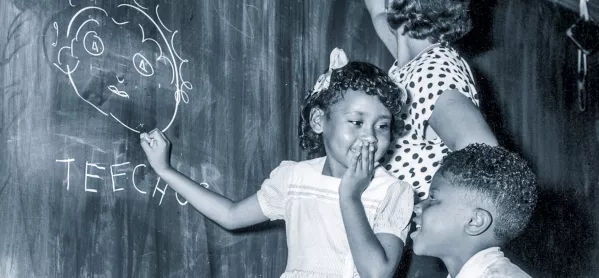- Home
- 4 quick wins for managing behaviour
4 quick wins for managing behaviour

Having high expectations of all students is key to effective teaching.
This is perhaps the first and most important thing that any teacher entering the profession can learn, and it is something that should be covered in all training courses as standard.
The most effective teachers are the ones that have learned to sweat the small stuff when they are managing students.
Quick read: Six tips for improving behaviour in school
Quick listen: Behaviour: the art of using rewards right
Want to know more? How learning to drive made me a better teacher
If teachers do not have high expectations of student behaviour in the classroom, and do not hold students to account, how can they expect their students to reach their full potential?
Furthermore, a culture of low expectations unconsciously teaches students that authority figures do not hold them in high regard or value their learning.
Behaviour: Clarity and consistency
Clear and consistent routines, embedded and reinforced from day one, are imperative in ensuring that students know they have a teacher who knows what they’re doing and intends to provide the best possible climate for learning in the classroom.
Sweating the small stuff may give the impression of nit-picking but being meticulous over even the smallest transgressions or misdemeanours early on can help to keep behaviour issues to a minimum and maximise opportunities for learning.
Here are four seemingly small things that can make a big difference and help to build a culture of high expectations in the classroom:
1. Pens down
It seems pernickety but ensuring that all students comply with this from day one is a signal that a teacher means business.
A simple, polite command - “pens down, thank you” - whenever the teacher is about to start speaking, and repeated whenever there is an indiscretion (tapping, throwing, painstakingly taking the pen apart only to put it together again and so on), is all that is necessary.
Students should not to be told why this is important. It can take five or six lessons for students to really understand that they must not touch their pens and must face the teacher, but it is time worth investing early on.
2. Start over again
The best advice for teachers struggling with disruptive behaviour whilst they are speaking? Start over every time you are interrupted. Every. Single. Time.
Most students interrupt unintentionally, either out of excitement, over-confidence or because boundaries have not been made clear to them. (Some students interrupt because they want to disrupt the lesson - if this is the case, they should be removed or sanctioned).
If you start over again on each interruption, students will become aware, without it being made explicit, that teachers intend to be heard. It also reinforces the importance of whatever the teacher is about to say; if they’re willing to repeat it, then it must be essential to students’ learning.
If teachers must start the same sentence again five times and sound like a broken record, so what? Sweating the small stuff here will lead to less interruptions over time.
3. Challenge minor misbehaviour
All students must display good behaviour, all teachers must expect it, and it must happen all the time. This means that tactically ignoring trivial behaviours is not an option. After all, if they breach school rules - however trivial - then the school behaviour policy should be adhered to.
Overlooking a causal swear word, for example, to keep a “naughty” child on side early on shows weakness. If there is any room for error, students will spot it and use it against teachers, potentially leading to bigger problems.
Teachers have to be vigilant and consistent in the way they spot and sanction minor transgressions. Following the behaviour policy to the letter means that students know what to expect when they misbehave, and it can help to stop poor behaviour from becoming the status quo in the classroom. It also makes discussions with progress leaders or parents easier should they need to occur.
4. Keep a tidy classroom
Teachers should bear in mind that their classrooms are learning spaces, not teenager hang-outs. From day one, teachers should make it clear that the classroom is their space and is to be respected and kept tidy.
A tidy classroom is more efficient - there will be less lost books, pens and assignments, and therefore less interruptions to learning. It makes sense to sweat the finer details early on.
Teachers should show students where books are kept, how chairs and desks are arranged and make it clear that it is their responsibility, not the teacher’s, to maintain it this way.
Where possible, keep students out of classrooms at break and lunch times to ensure the room is kept up to scratch.
Remember, sweating the small stuff early on may seem trivial but if students learn that their teachers have high expectations from the start, then it will lead to better behaviours and a better climate for learning later on.
Laura Tsabet is Director of CPD and ITT at a school in Bournemouth. She tweets @lauratsabet
Keep reading for just £1 per month
You've reached your limit of free articles this month. Subscribe for £1 per month for three months and get:
- Unlimited access to all Tes magazine content
- Exclusive subscriber-only stories
- Award-winning email newsletters



